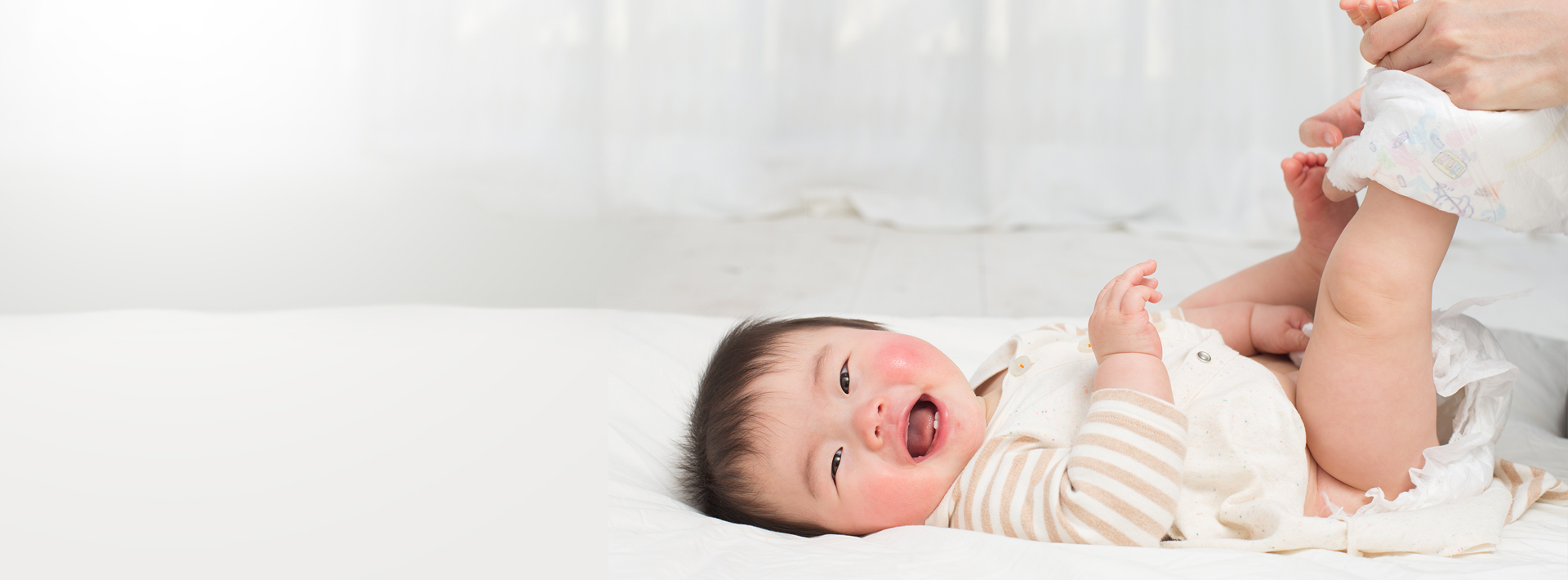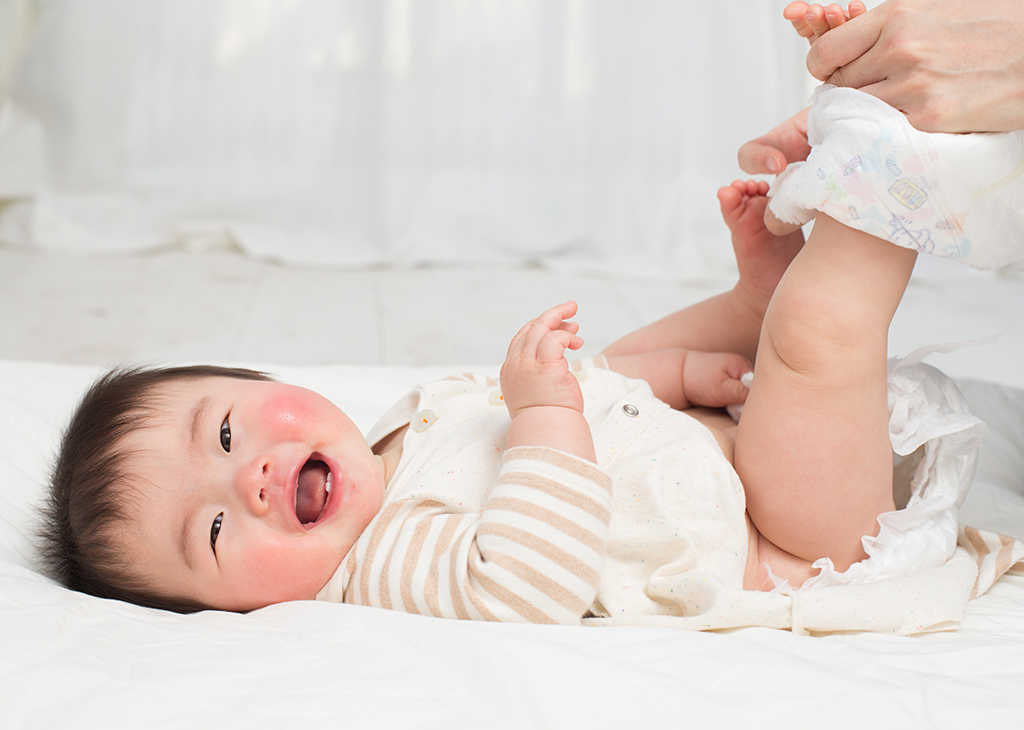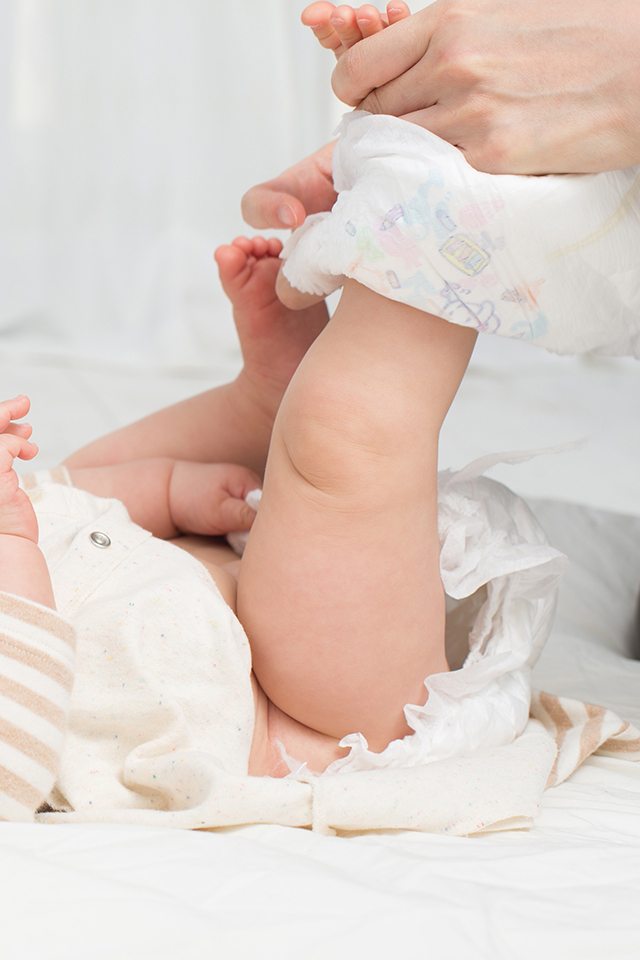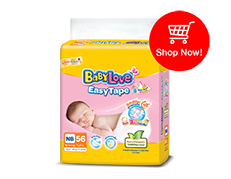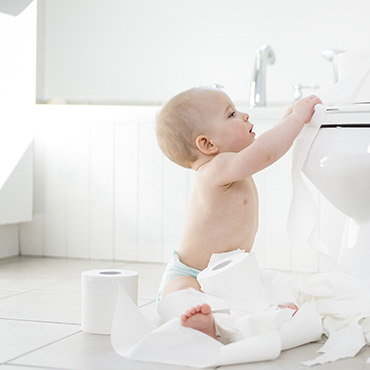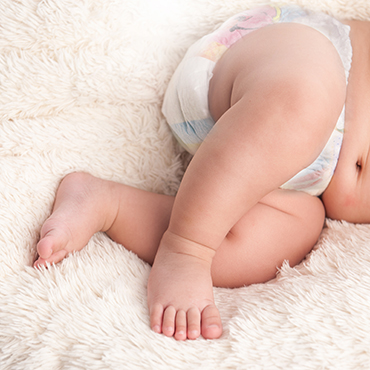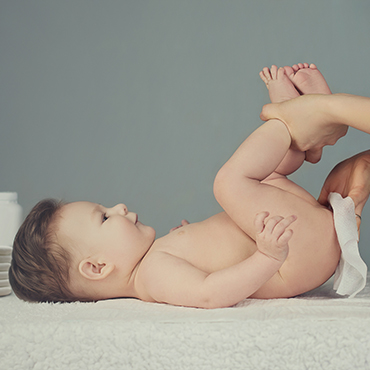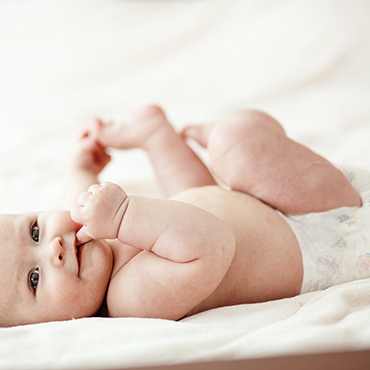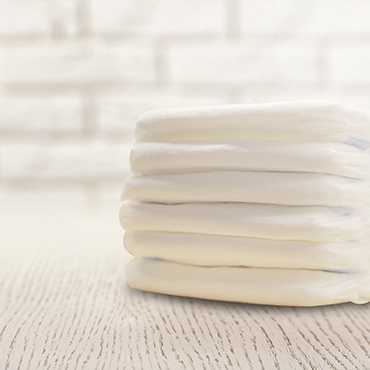Caring for the hygiene of the little one is a very important duty for parents. Parents must help each other, especially because a baby’s skin is delicate and easily irritated. Hygiene in areas hidden by the diaper should be emphasized. How often and how are parents supposed to clean little ones during diaper change in order to maintain their hygiene? We have the answer for you.
Normally, diapers should be changed every 2-3 hours. Do not let the baby have the diaper on for more than several hours or wait until the diaper feels wet before changing the baby. If the baby defecates, the diaper should be changed immediately and the baby should be cleaned every time before putting on a new diaper. In case of allergic skin reactions or diaper rash already existing, letting the baby’s bottom be soaked in the diaper for a long time is something that must be avoided.
However, the number of times a baby needs to be changed is not set in stone. The parents should mainly consider the hygiene of the baby. This includes the following factors:
1. Type of Diapers
The type of diaper plays an important role in determining the frequency of changing. If the baby wears muslin cloth diapers, since the texture is so light, it does not retain liquids very well. Therefore, once the diaper is wet, it must immediately be changed. However, newer disposable diapers have the ability to absorb more liquids, therefore, it does not feel wet immediately Newer disposable diapers are able to absorb more liquids efficiently through the absorbent gel layer, leaving the skin dry and ventilated. Therefore, the diaper does not feel damp. This helps to extend the time between changings for parents to be able to do more activities.
But it does not mean that when using disposable diapers, you can wait until the diaper is full before changing it because letting the baby’s bottom and pelvic area come into contact with contaminated diapers filled with urine for many hours can cause diaper rash, dermatitis, or urinary tract inflammation. If combined with hot and humid weather, the urine in the diaper may become warm and cause dampness. When left for a long time, bacteria can easily grow and come into contact with the baby’s skin.
To help the baby maintain good hygiene, parents should always change diapers every time they get wet. Check the diaper surface on the interior of the diaper periodically to determine whether it is completely dry to the touch. If it starts to feel wet, the diaper should be changed immediately. There is no need to wait 2-3 hours. Choosing to use disposablediapers that absorb well and are cost effective can also allow parents to change the babies more often as necessary.
2. Age of Baby
In addition, the frequency of changing diapers depends on the age of the baby. Because with babies of different ages, the rate of excretion varies as follows:
- Newborn to 1 month: excrete relatively frequently. The baby defecates about 5-12 times a day and the stool is liquidy, depending on the amount of milk they are fed. Therefore, they need to be changed quite often, that is, every time the baby defecates, the diaper needs to be changed immediately. Babies usually defecate when they are eating or after they are done eating.
- 1 month and older: The excretion rate will begin to decline. The baby may defecate less at about 6-8 times a day. The frequency and volume depends on the milk of each baby is fed.
- 12 months and older: The excretion frequency begins to resemble adulthood.
It can be seen that the amount of excretion will decrease with increasing age. When the baby is younger, the parents may have to struggle to keep up with changing diapers and cleaning the baby. As the baby grows, there will be less work for the parents.
Changing diaper is important to the health and hygiene of the baby. It is not difficult at all. Just keep observing the little one’s behavior regularly and practicing your changing skills. Whether you are a mother or a father, you can become a pro with changing diapers.
Source : www.rakluke.com and www.mamaexpert.com
Crated At 30/11/2016













